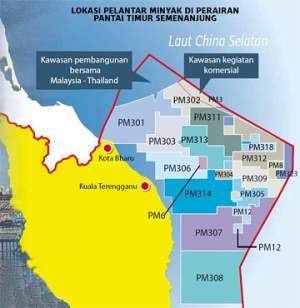 Manifestos are part and parcel of any general election. They also play a vital role in determining the success or defeat of an electoral candidate or a political party.
Manifestos are part and parcel of any general election. They also play a vital role in determining the success or defeat of an electoral candidate or a political party.
The word ‘manifesto’ is being bandied about increasingly in the media and in conversations among the people in the run-up to the 13th General Election, particularly with regard to promises made by political parties prior to the last general election and as to whether they have been delivered or not.
So, what is a manifesto, actually? The Oxford Dictionary defines it as “a public declaration of policy and aims, especially one issued before an election by a political party or candidate.”
Che Hamdan Che Mohd Razali, political science lecturer at Universiti Teknologi Mara (UiTM) in Dungun, Terengganu, is of the opinion that a good manifesto is one that can inspire the desire among voters to choose a political party or candidate to represent them.
“Of course, the candidate plays an important role but the voters also want to know what is the manifesto or declaration being offered by the party,” he told Bernama.
And to what extent do all voters remember the declarations or promises made prior to a general election?
In a 2009 study of a group of people aged between 21 and 40, it was found that most respondents had forgotten what was offered to them during the 2008 general election campaign, said Che Hamdan.
“At that time (the general election campaign), voters were excited by what was offered in the manifestos of political parties. But after some time, they forgot the points and only recalled them after certain related issues were raised nearer the general election date,” he said.
Speaking of the next general election, Che Hamdan, who is also a political analyst, said that apart from the contesting candidates, the offer of an attractive manifesto would be among the deciding factors to determine the success or defeat of a party.
“Informing people of what has been implemented is actually very effective.
They’ll then know what has and has not been done.
“I feel that the Barisan Nasional (BN) should increase the dissemination of information on what it has implemented,” he said referring to the “Jelajah Janji Ditepati” (‘Promises Fulfilled’ Tour) which provided a platform for people to obtain the latest update on the government’s efforts to help them.
Lecturer Prof Dr Ahmad Atory Hussein of the Universiti Sains Malaysia (USM) Social Science Studies Centre, said a manifesto means a declaration or promise which must be presented at any general election.
“Based on political science, there are several elements in a general election, such as campaigns and manifestos. And a manifesto is the main element in any general election,” he said.
The manifesto has a very strong influence in determining the continuity of a party or individual, he added.
A manifesto which fulfills the needs of the people in a particular locality would generally influence the voting pattern,’ he said.
“For example, at the 2008 general election, the opposition had a manifesto which attracted the attention of the people and this allowed them to win in several states,” he said.
However, many of their promises remain unfulfilled, to the point that people were willing to take them to court, he said.
The Parti Keadilan Rakyat-led Selangor government was now facing several legal suits brought by consumers over the water subsidy which was promised in the party’s 12th general election manifesto, he said.
Ahmad Atory said voters would also evaluate the ability of a representative to deliver on promises, through the manifesto.









